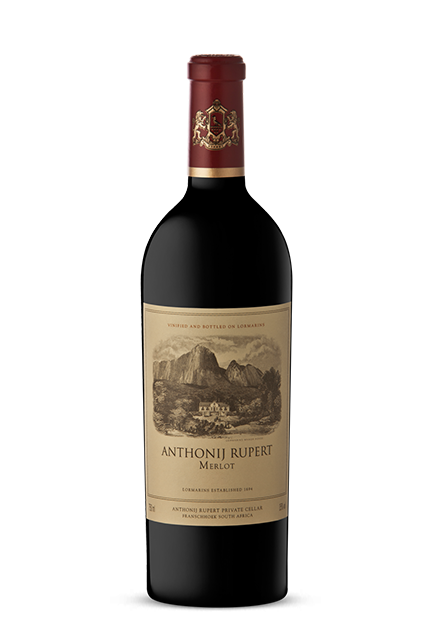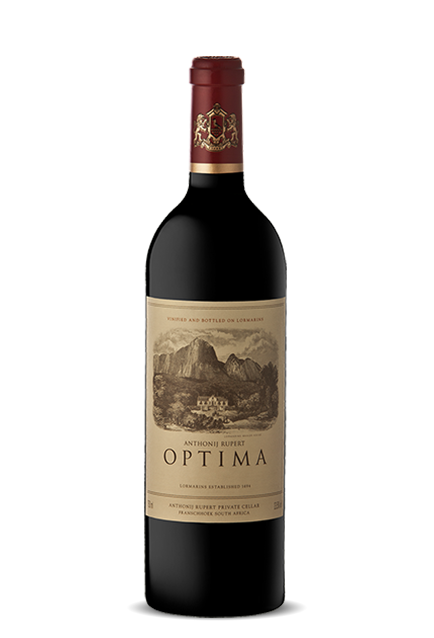Syrah

Syrah 2018
Peppery spice, blue and black fruit with additional allure of a brush of dried herb and fynbos on the nose. Corduroy softness and mouthfeel is apparent on entry. That texture grows, as does the fruit intensity, into a fantail of flavour: ripe plum, blueberry and a hint of licorice and herbs. Buttressing that ripeness is the structure lent by well integrated oak and a sinewy muscularity and leashed power. Good frame and harmony – nothing is dominant. Long, rich tail with spice and fynbos on the end.

Syrah 2017
Gentle wax sheen on the blueberry, plum, and fynbos nose. Supple, rounded, and soft, with mouthwatering flavours of spicy and blueberries. Graphite, ink,
and cocoa powder flavours combine to create a mouthful that is both complex and satisfying. The oak is beautifully integrated and provides structure without overpowering the juicy fruit and allows for a long lingering finish on this sophisticated wine.
Accolades: 93 Points – Tim Atkin MW

Syrah 2015
Seductive meaty black fruit aromas with traces of white pepper and a shy hint of smoke. Appealing sour plum, black cherry and soy sauce flavour makes for a deliciously savoury mouthful. A toned, sculpted frame of well-knit oak balances bright spice and succulence. The palate is plush and silky while also demonstrating leashed power and presence. Beautifully restrained and statuesque with a darkly delicious aftertaste.
Accolades: 91 Points – James Suckling, 91 Points – Wine Spectator, 89 Points – Tim Atkin MW, 4.5 Stars – Platter’s SA

Syrah 2014
Understated fynbos edge to plump black plum and vanilla spice with a hint of violets on the nose. Complex and intriguing.
The palate is simultaneously plush-textured and svelte but multi-fac- eted with plum-, blueberries-, ink and spice notes. A focused, linear wine which is graceful with beautifully integrated mature oak notes. The tail is long, spicy, rewarding and intricate.
Vintage Notes
Due to a prolonged drought that was possibly the worst in a century’s worth of records, the harvest season of 2018 was especially challenging. The dry weather that persisted throughout the season had some positive effects, namely that the vines were in better health and there were either fewer or no instances of pests and diseases recorded. Because of the stress caused by a lack of water, the berries were significantly smaller than usual, which led to a reduced harvest. Smaller berries offer higher colour and flavour intensity, and the 2018 vintage is expected to be of high quality due to the milder temperatures during harvest.
Winemaking
All of the berries used to make this wine were sorted using an optical sorting machine to ensure that only the best quality was used throughout the making of the Anthonij Rupert Syrah. Fermentation took place in stainless steel and concrete tanks. After fermenting dry on the skins, the wine was pressed and immediately transferred to a barrel. The process of malolactic fermentation was finished off in the barrel. The wine was aged on the gross lees for about 6 months before being racked and returned to the barrel. The maturation took place in 225-liter French oak barrels, with a small percentage of new oak. This adds complexity and a hint of smokiness to the wine.
Origin of Fruit
Franschhoek
Vintage Notes
All of the grapes are harvested from L’Ormarins, Franschhoek. These vines are planted in the echalas, or also known as ‘Stok-by-paaltjie’ trellising system. Fermented in Stainless steel tanks to preserve the beautiful fruit component of this particular cultivar. Malolactic fermentation was completed in barrel and racked off the leas thereafter. Wine was aged for 18 to 20 months in 225L French oak barrels with a small percentage being new oak. This adds some good complexity and a touch of smokiness to the wine.
Winemaking
An optical sorting machine was used to ensure that only the best berries were selected to be crushed and fermented for the Anthonij Rupert Syrah. A combination of stainless steel and concrete tanks was used for fermentation. Once fermented completely dry, the skins and the must is pressed in our basket press and transferred to the barrel for malolactic fermentation. The wine is aged on the gross lees for an additional six months before being tracked and returned to the barrel. A small portion of new 225L French oak barrels was used for maturation of about 18 -24 months.Our extended barrel maturation and selection of oak allow for more mid-palate depth and a hint of smokiness and spice on the finish.
Origin of Fruit
Franschhoek
Vintage Notes
Warmer weather in August and a dry and windy summer led to one of the healthiest seasons in years. Cooler weather than usual in February and lower temperatures at night during this time contributed towards good colour and intense flavour. 2015 will be a vintage to remember and great wines are expected from this vintage.
Winemaking
All of the grapes are harvested from L’Ormarins, Franschhoek. These vines are planted in the echalas, or also known as ‘Stok-by-paaltjie’ trellising system. Fermented in Stainless steel tanks to preserve the beautiful fruit component of this particular cultivar. Malolactic fermentation was completed in barrel and racked off the leas thereafter. Wine was aged for 18 to 20 months in 225L French oak barrels with a small percentage being new oak. This adds some good complexity and a touch of smokiness to the wine.
Origin of Fruit
Franschhoek
Vintage Notes
The vineyards selected for the Anthonij Rupert wines are chosen from vines planted on very specific sites and soil types. The canopies of each block and the final yield of each site were managed precisely to express the character of the different varietal and location.
Winemaking
Grapes are picked by hand, placed into small lug boxes and transported to the cellar in refrigerated trucks. In the cellar, the whole berries are manually double sorted and then gravity-fed into fermenters. Each batch is cold soaked for a few days and then slowly brought up in temperature. Fermentation takes place naturally in the barrel. The wines were aged for 18-24 months in 85% 225L new French oak barrels, bottled unfiltered and bottle-aged for 2 years.
Origin of Fruit
Franschhoek







